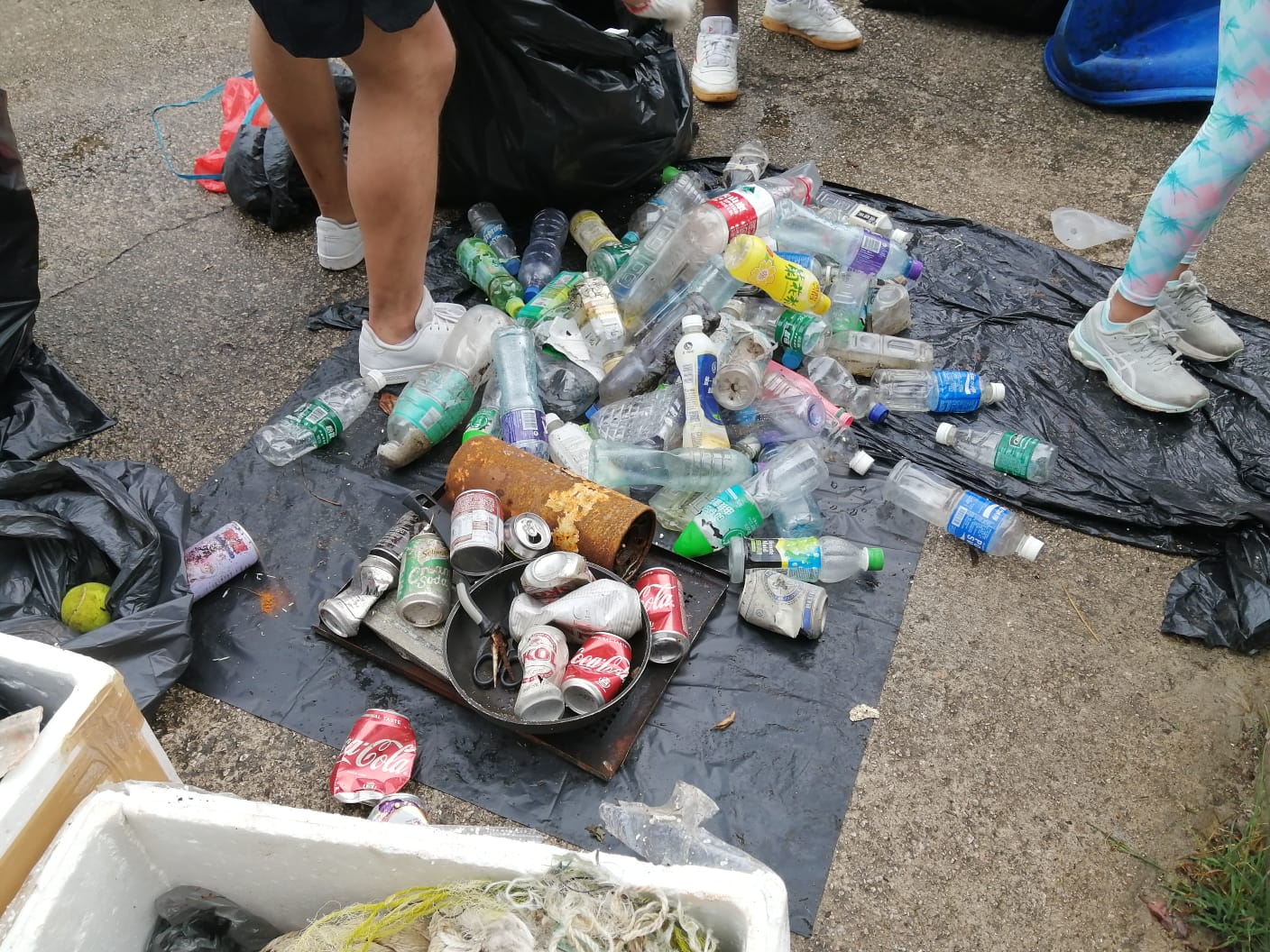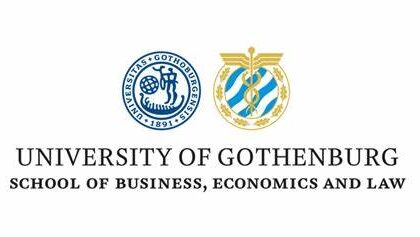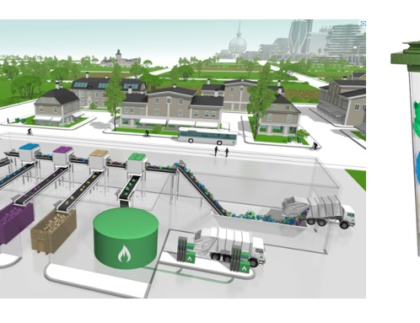
SwedCham submission to PPRS - May 11th, 2021
Submission in response to
Public Consultation on the Producer Responsibility Scheme
The Swedish Chamber of Commerce in Hong Kong (‘SwedCham’) welcomes the Environmental Protection Department’s Producer Responsibility Scheme on Plastic Beverage Containers (‘PPRS’). SwedCham has through its Sustainability Committee been working actively since 2017 to raise awareness of the issue of plastic waste, engaging a multitude of stakeholders from the Government, academia, NGOs and the business community. A position paper calling for firm action to tackle the escalating problem of plastic waste was issued, together with a pledge to eliminate plastic bottles and single-use plastics at the workplace, which nearly all member companies in Hong Kong, China and Singapore adopted.[1]
A comprehensive PET bottle deposit scheme was one of SwedCham’s key recommendations in the position paper calling for a green recovery in Hong Kong, released in October 2020, in order to increase the low PET bottle recycling rates of 10%.[2] Hence, SwedCham strongly supports the introduction of a mandatory Producer Responsibility Scheme (‘PRS’) to enhance the recycling rate of plastic beverage containers and further government action for effective recycling infrastructure in Hong Kong.
Learnings from the Swedish recycling scheme for beverage containers
Sweden has one of the longest running recycling system with deposit for beverage containers, mandated by law and in operation for nearly 30 years.[3] The system is run by Returpack, a company that is co-owned by beverage producers, grocery retailers and grocery retail industry associations, and supervised by the government through the Swedish Board of Agriculture. It covers all business operators producing or importing drinks in plastic bottles or aluminium cans of all sizes, with the exception of dairy and juice drinks. The system has yielded one of the highest recycling rates in the world; 88% in 2020, just short of the 90% target, equivalent to 214 pieces per person per year.[4] Glass containers, although not covered by the scheme, has a recycling rate of 90% owing to strong social norms and convenient kerbside collection.[5]
There are three key drivers for the success of the Swedish scheme:
- A deposit of high monetary value to motivate consumers and create monetary incentives for informal collection networks
The monetary value is 1 SEK (0.90 HKD) for containers up to 1 litre and 2 SEK (1.80 HKD) for bottles over 1 litre. It is a deposit paid by the consumer (included in the purchasing price of the drink) and later refunded when the container is returned to the system, most commonly through reverse vending machines (‘RVM’). Hence, the deposit is contained in the system and carries limited financial risk.
A deposit, as opposed to a rebate suggested under the PPRS, would constitute a direct application of the ‘polluter pays principle’ when unredeemed deposits are applied back to the scheme; the consumers that do not recycle will lose money. Furthermore, deposits need to be at a high enough monetary value to be perceived as worthwhile for the consumer. According to OECD, the amount refunded for each returned item is the key element that directs consumer behaviour and hence the likely effectiveness of the system in achieving a high return rate. The higher the amount of the deposit and refund, the stronger the incentive for consumers to return the item. If the deposit and refund, hence the consumer incentive, are set at a low level, many items may be discarded in the general waste stream or elsewhere.[6] In an international benchmark survey, the deposit schemes of ten European countries achieved return rates of above 87%. Each of the countries had a deposit level at or above the 1 HKD level – Germany had the highest return rate with a deposit of about 2 HKD.[7]
The relatively high monetary value associated with each container would be a key driver for not only consumers, but also informally organized collection networks. In Sweden, youth organizations, sports associations or simply impoverished people occasionally resort to collecting drinks containers for the monetary incentives. Similar informal networks in Hong Kong, such as helpers, street cleaners, etc would play a key role for the wide adoption of suggested PPRS and need to be taken into account.
- Wide availability of reverse vending machines at grocery retailers
The availability of reverse vending machines is critical for a well-functioning deposit return system in Sweden. By locating them in retail stores, it is convenient for consumers to return used beverage packaging and re-collect the deposit. The RVMs across Sweden are primarily located in supermarkets and 94% of the recycled containers go through this route. The remainder are collected manually and sent to recycling with a reverse logistics flow through the manufacturer. There are about 3,000 RVM spots in Sweden covering a population of 10 million people, but in a land area far larger than Hong Kong.
- A recycling scheme designed to match consumption and travel patterns in order to become a convenient part of everyday life
Swedish households would normally collect beverage containers at home and routinely return them to RVMs at the grocery stores during the weekly grocery shopping trip. It is considered convenient and part of the weekly household routines. In a far more densely-populated city as Hong Kong, where space is limited, grocery shopping is done more frequently and public transportation is widely used – the scheme needs to be designed to maximize convenience.
The scheme must enable recycling points at locations convenient for the everyday life in Hong Kong in order to be successful. One such place is the everyday store, of which there are about 800 grocery stores and 1,200 convenience stores in Hong Kong. In addition, RVMs should also available at convenient locations where space is relatively less scarce, such as public transport facilities (including MTR stations), public facilities (such as next to existing vending machines or replacing old phone booths), residential estates and shopping centres.
Finally, the Government should consider starting out with pilot areas before aiming for city-wide participation of outlets, as well as explore innovative solutions that put greater responsibility on citizens’ behavioral change, such as mobile apps that scan barcodes and direct consumers to nearest point of recycling (whether that is a RVM or community recycling station) and could lower the total number of RVMs required in the city.
SwedCham’s position on the PPRS (see Annex B: View Response Form)
- SwedCham strongly supports introducing a mandatory PRS to enhance the recycling of plastic beverage containers
- SwedCham strongly supports that the PPRS should cover beverage products within the volume range of 100mL-2L
- SwedCham strongly opposes the provision of rebate under the proposed PPRS
- SwedCham strongly disagrees that a rebate at 10 cents per container to be an appropriate level and considers 1 HKD as deposit, not rebate to be the minimum rebate level to properly and realisticly incentivise the public to recycle their plastic bottles.
- SwedCham strongly supports that relevant retailers (in particular the larger retail stores) should be mandated to provide take-back and rebate redemption services
- SwedCham considers the following types of location to be appropriate for take-back and rebate redemption services, in order of priority:
- Public transport facilities (including MTR stations)
- Supermarkets
- Other relevant retail stores
- Public facilities (for example next to existing vending machines)
- Residential estates
- Shopping centres
- SwedCham strongly supports that we should collect the recycling levy at supplier level (i.e. manufacturers and importers) to fund the operation of the PPRS
- SwedCham disagrees that moderate reduction of recycling levy should be allowed if suppliers have provided proper arrangements to recycle plastic beverage containers meeting certain environmental requirement
- SwedCham strongly supports imposing licensing requirement on recycling facilities for handling the waste plastics collected under the proposed PPRS
Specific suggestion on promoting eco-packaging design
In accordance with the ‘Reduce-Reuse-Recycle’ principle, we believe that it would be appropriate to tie the recycling fees payable to the amount of plastic used. This would encourage innovative and thoughtful use of raw materials. A centralised system where the producers bear responsibility for recycling of all beverage bottles would encourage the streamlined use of one type of plastic. This in turn will yield higher recycling rates and higher quality of the recycled material.
In order to further enable, encourage and simplify large scale recycling of plastic beverage containers all such containers should be mandated to be transparent PET and with no added colouring. This will greatly increase the value of the recycled material and esure that we can keep recycling and rely on the recycled material as raw material for production.
Beyond plastics – towards a holistic strategy and action plan for circular economy
Looking beyond the topic of plastics, SwedCham would like to stress the importance of a holistic take on Hong Kong’s path towards zero-landfills by 2035 and carbon-neutrality by 2050. Clear government action is also needed to address key issues such as waste collection infrastructure, expanding local recycling capacity and raising public awareness – in order to create an effective and efficient city-wide system. This is the holistic view adopted by Sweden to achieve a world-leading waste management system, where municipal waste to landfill is close to zero. The Swedish government-led circular economy strategy stakes out the transition to a circular economy through a green recovery and making sure that circular economy is a key functioning part of overall policy-making, followed by action plans containing concrete measures.
Please feel free to contact us at chamber@swedcham.com.hk to further discuss the proposal.
Kristian Odebjer, Chairman, SwedCham
Alexander Mastrovito, Chair, SwedCham Sustainability Committee
Anna Zhan, Vice Chair, SwedCham Sustainability Committee
Anders Hellberg, SwedCham Plastic Waste Working Group
Torbjörn Magnusson, SwedCham Plastic Waste Working Group
Previous SwedCham papers on related topics
- Position paper on Plastic Waste: A Call for Action (link)
- Position paper on Green Recovery: Calling for a Green Dimension to Drive Sustainable Growth in Hong Kong (link)
The Swedish Chamber of Commerce in Hong Kong – Promoting Swedish business and values in Hong Kong since 1986. By members for members.
SwedCham exists to advance the interests of Swedish business in Hong Kong. In this role, we build networks among corporations of all sizes, as well as between decision makers and opinion leaders within Hong Kong and beyond. We advocate a fact-based approach to analysis and problem solving, supported by Swedish values. SwedCham HK has 160+ member companies and 60+ individual and young professional members.
[1] https://www.swedcham.com.hk/wp-content/uploads/2018/10/Position-Paper-SwedCham.pdf
[2] https://www.swedcham.com.hk/swedcham-hks-sustainability-committee-a-green-recovery-calling-for-a-green-dimension-to-drive-sustainable-growth-in-hong-kong/
[3] https://www.riksdagen.se/sv/dokument-lagar/dokument/svensk-forfattningssamling/forordning-2005220-om-retursystem-for_sfs-2005-220
[4] https://pantamera.nu/en/private-citizen/facts–statistics/deposit-statistics/
[5] https://www.scb.se/en/finding-statistics/statistics-by-subject-area/environment/waste/waste-packaging/pong/tables-and-graphs/recycling-targets/
[6] https://www.oecd.org/environment/outreach/Creating%20Incentives%20for%20Greener%20Products.pdf
[7] https://www.reloopplatform.org/wp-content/uploads/2018/05/BOOK-Deposit-Global-27-APR2018.pdf






